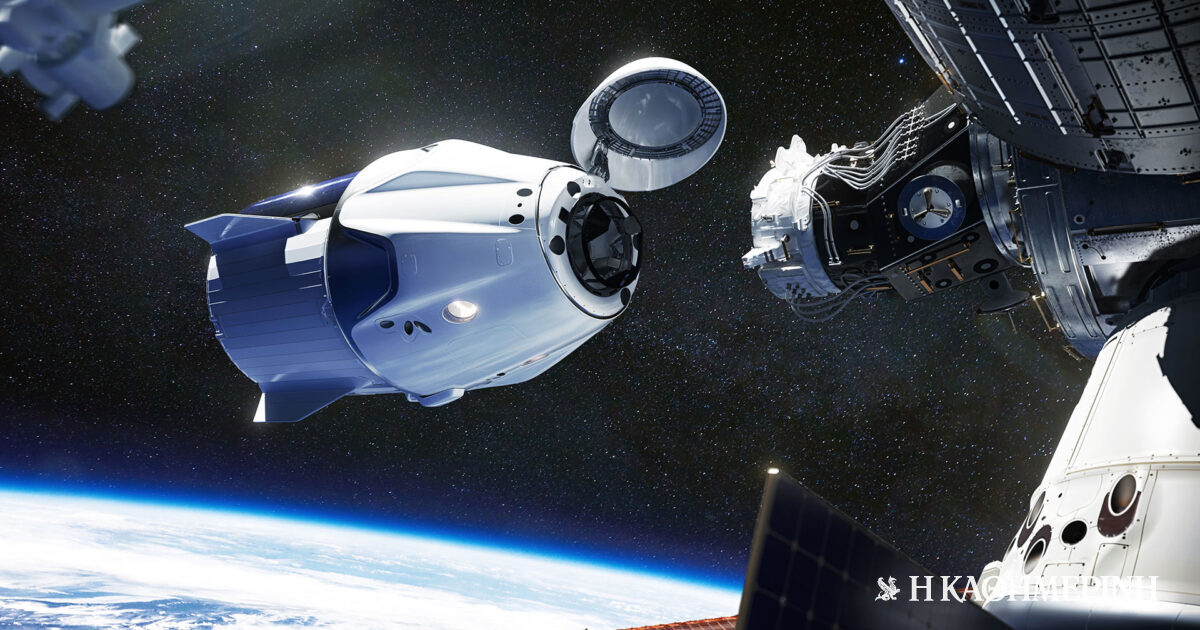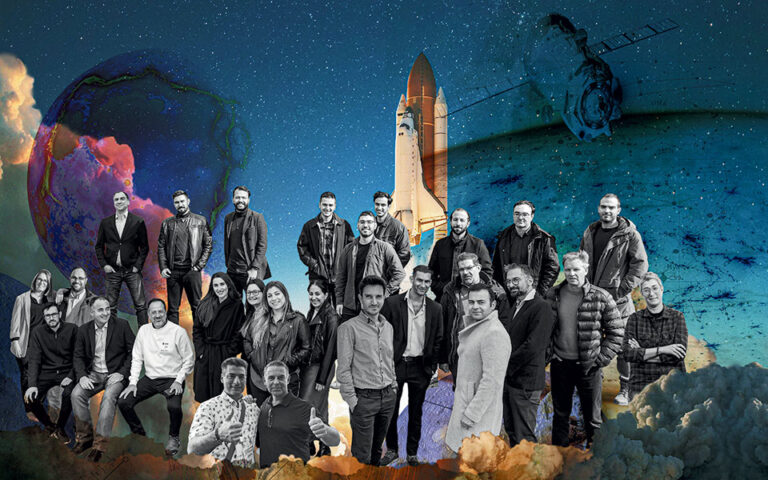
production line in space It might sound like a science fiction scenario, but it really is reality, on a very small scale.
This is a nascent market that analysts and many startups are anticipating.
“In terms of pharmaceuticals, semiconductors, beauty and health products, and possibly food, in the sense of new crops, we estimate that the market will exceed $10 billion sometime in 2030, depending on the speed of maturity,” Ilan Rosenkov, partner at consulting firm McKinsey, told CNBC. .
Space provides a unique environment for research and development because higher levels of radiation, microgravity and vacuum allow companies to innovate new manufacturing methods or materials in ways that would be impossible on Earth.
This practice is not entirely new. The International Space Station has hosted numerous experiments by academics, government agencies, and companies, with the goal of growing human tissue, making cleaner semiconductors, and developing new or better drugs. In the 2024 budget, President Joe Biden has allocated an additional $5 million to NASA to continue cancer research on the International Space Station (ISS).

However, access to the International Space Station is impossible for most interested parties while demand is growing. Now, many startups see an opportunity to meet demand by setting up small, space-based factories.
Better drugs “from heaven”
One of them is Varda Space Industries in Southern California. Varda’s mission is to help pharmaceutical companies improve their medicines or create new treatments by exploiting the unique properties of space and then sending the formulations back to Earth.
The “key” to Varda’s trade proposal is a phenomenon known as protein crystallization. This occurs when essentially supersaturated solutions of proteins are evaporated to form a solid so that scientists can study the protein’s structure.
Analysis of the protein’s crystal structure can help scientists better understand disease mechanisms, identify drug “targets” and improve drug design: Medicines with the fewest side effects, the most effective and the most long-lasting.
Years of research have proven that protein crystals grown in space are of much better quality than those grown on Earth. The goal is not to develop a complete drug in space, but only the active substance that guarantees the therapeutic effects.
“We will not make penicillin or ibuprofen (…) that is far beyond our current capabilities,” admits Dilian Asparukhov, co-founder and president of Varda Space Industries. Our current production facilities.
Asparukhov noted that in the entire United States in 2021 and 2022, in the hundreds of millions of doses of Pfizer’s Covid-19 vaccine, the total amount of the essential pharmaceutical component of crystal mRNA would fit comfortably “in two jugs.”
Chips faster
On the other side of the Atlantic, in Cardiff, Wales, Space Forge is designing its own space factory to manufacture the next generation of semiconductors. Space Forge’s goal is to make semiconductor substrates, replacing silicon with other materials, to make more efficient, higher-performance chips.
“Next-generation materials will allow us to achieve efficiencies that have never been seen before,” said Andrew Barlock, CEO of Space Forge US. “We’re talking about improving semiconductor performance by a factor of ten or even a hundred.”
As with pharmaceuticals, the “secret” behind improved performance lies in semiconductors Create perfect crystals in space. These types of advanced chips are important for 5G technology and electric vehicles.
Like Varda, Space Forge plans to manufacture only a portion of the chips in space.
“Once these crystals are created in space, we can bring them back to Earth and effectively replicate the manufacturing process on Earth,” explained Josh Western, CEO and co-founder of Space Forge, adding with relief that they won with their business model. Countless flights into space would be required.

“Avid problem solver. Extreme social media junkie. Beer buff. Coffee guru. Internet geek. Travel ninja.”





More Stories
In Greece Porsche 911 50th Anniversary – How much does it cost?
PS Plus: With a free Harry Potter game, the new season begins on the service
Sony set to unveil PS5 Pro before holiday season – Playstation